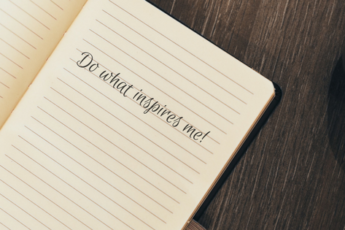I’m someone who can find the silver lining in just about anything. My brain works in a way that I can see multiple possibilities or outcomes which makes me an excellent problem-solver. However—the downside of this can be “analysis paralysis” which leads to over-thinking and spending too much time in my head. The good news is, this is where intuition comes in (or gut or heart feeling) to help make decisions both big and small (more on this in a future post).
I’m guilty of being someone who has told her friend in tears that “it’ll all work out” or “it’s all happening for a reason” or “everything is working out just fine” — these phrases certainly have their time and place but should be wielded carefully. For example, if your friend just lost a job they loved or got their heart broken, in that moment of shock, grief, disappointment, or anger — the best thing to say may very well be “you’re right, that really sucks” or “I’m so sorry you’re going through this.”
When I was going through the toughest time in my career (a very bumpy 3-year long road), the man that I was dating at the time was my rock. On my worst days when I’d be in tears of frustration or just plain over it, he always had my back. He would cheer me on and remind me of my strengths and gifts. He never glossed over my pain and just let me air it all out; listening patiently and giving me the space to feel it all.
The danger in not allowing yourself or someone else the space to feel the full depth of emotion, is that those feelings get stuffed deep down but inevitably can resurface in ways that can be destructive. We are often taught to tough things out, put on a happy face, or to not let things get us down. Perseverance is powerful and that is how we make great things happen, but you don’t want to do it at great cost.
When women come to me for help in their careers they often have been bottling up so much frustration, anger, and fear that they are ready to just quit and run away from it all. They feel powerless. However, these feelings are messengers—messengers about what isn’t working for you and what needs to change. Recognizing this when these emotions come up gives you the power to do something about it.
A few years ago I studied the martial art of Aikido. I recall attending an Aikido workshop in San Francisco and there was something that the Sensei said that really stuck with me. He had us visualize a swirling motion (imagine stirring a very large pot of water) and this swirling image represents the emotion that you feel in that moment. So you sit with it, you let it swirl around you, feel it, accept it as what is in that moment. You don’t resist or deny it.
Here are some of the ways that I like to to move through this process:
- Journal or write about everything you are feeling; don’t filter. You can burn the paper later in the fireplace if you’d like.
- Talk it out with a trusted friend or mentor. Have them ask you how you are REALLY feeling.
- Move your body and let the emotion out to be expressed — dance it out in your living room, exercise, hike, shout it out if you can.
- Give yourself the time and space that you need. This could be a day or it could be weeks.
I imagine that I will always be able to see a silver lining and try to find meaning when emotions feel heavy. Sometimes there’s a lesson to be learned in the process that will have a future benefit. Sometimes we won’t have the benefit of understanding why a certain experience happened. What we can do is allow the uncomfortable feelings to be felt and acknowledge that yes, sometimes this human experience is hard and confusing. But it doesn’t have to stop you from going after what you want. This can be the force that drives you to make a change.
Allowing yourself to feel it all — happy, sad, angry, exhilarated…. is what makes you human and what also gives you the power to change your mind, to create, to build, to tear down, or to experience something amazing.





